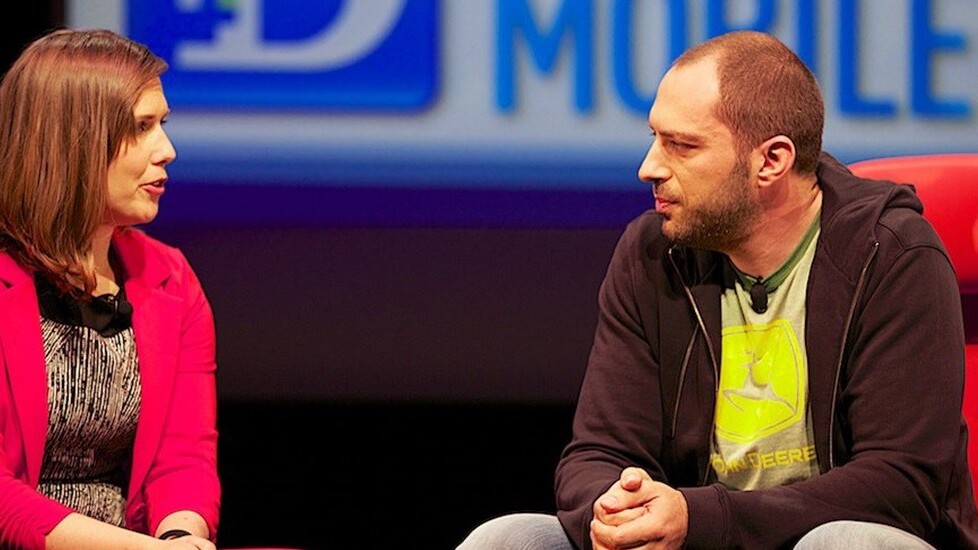
WhatsApp doesn’t do a lot of press, so when CEO Jan Koum — pictured in the image above — speaks it means there’s an important milestone or significant piece of news. That was the case yesterday when Koum told AllThingsD in an interview that the service has now passed 300 million monthly active users and is introducing a push-to-talk feature.
That’s impressive growth for WhatsApp, which has increased its monthly active user base by 50 million in just four months. It’s also broken its record of 27 billion messages processed in a day — set in June — which now stands at 31 billion per day.
WhatsApp has faithfully stuck to a subscription-based business mode, which sees each user pay $0.99 per year for unlimited, ad-free access to the service. It’s also resolutely maintained a simplistic approach to messaging, eschewing ‘bells and whistles’ to provide a ‘tech-proof’ experience that suits users of any age.
This approach is clearly working for WhatsApp, but it’s increasingly hard to ignore the fact that the rest of the messaging industry is moving towards a more feature-rich experience.
More apps are embracing features like stickers, games and even payments which, crucially, appear to bring in more revenue than the subscription fee model — although WhatsApp has never released revenue or financial details.
“We’re not going to come out with a big gaming platform launch,” he told ATD’s Liz Gannes, making it clear on the company’s future direction.
Koum’s position on rivals taking the content route is interesting too. From the ATD article — emphasis ours:
Asked about competition from significant Asian players like WeChat and Line, which have now expanded into platforms for games and other apps, Koum said he had no interest in anything that smelled like an advertising business. (Platforms and ads aren’t necessarily correlated, but they often come together.)
Again, the position on a potential games business is made very clear. There’s also an implication that games (which make money through in-app purchases, as is rapidly becoming standard across the mobile games space) and stickers (which allow users to buy rich-emoticons to add expression to their conversations) are some how forms of advertising.
Things get more interesting when Koum provides further color on his views:
During the Santiago de Compostela train disaster in Spain last month, a woman buried in rubble was able to text her husband her whereabouts using WhatsApp. It became part of the larger narrative around the tragic, deadly event.
Back at the WhatsApp office, Koum was indignant as he asked, “Can you imagine if that woman had to watch an ad before she wrote to her husband?”
He went on, “Utilities get out of the way. Can you imagine if you flipped a light switch and had to watch an ad before you got electricity? Can you imagine if you turned on a faucet and had to watch an ad before the water came out?”
Koum appears to insinuate that rival applications that include content platforms sport monetization features that interrupt the user experience, literally preventing users from sending messages and communicating instantly.
Those apps may exist (I’ve never seen them), but it certainly isn’t the type of experience provided by Line, Kakao Talk or Tencent-owned WeChat (three Asian competitors from Japan, Korea and China respectively). Nor is it one you will find if you use Tango or Kik, two North America-based messaging firms that recently embraced social games.
In all these cases, games, stickers and other features are opt-in and don’t obscure the ability to communicate. Companies would be crazy to let ads get in the way, and certainly the Asian firms — each of which runs other services and are valued in the hundreds of millions or billion dollar bracket — are not so naive as to ruin their experience for the sake of a few bucks.
Yet, if you’ve never used any of those apps and simply read Koum’s comments, you will think that they are plastered with ads. They are not.
It’s difficult to be too critical of Koum’s comments on the basis of just one article, but this ‘forced ad’ argument simply doesn’t apply anywhere in the industry, and neither is it an evolution path that Line and others are plodding down.
You could take it further and argue that Koum is attacking a straw man, perhaps in response to the financial success that Kakao Talk and Line are reaping. Line’s revenue is tipped to rise by over 30 percent to 95 billion won (around $85 million) for its second quarter results, while Kakao Talk’s games platform grossed 348 billion Won ($311 million) in revenue during the first half of 2013.
WhatsApp’s results are all the more impressive considering it has a 45-person team, and there’s certainly an argument that it could develop at a more rapid pace were it to increase its revenue via a content-driven approach. Koum appears unequivocal that this will not happen, however.
Headline image via AllThingsD
Get the TNW newsletter
Get the most important tech news in your inbox each week.




